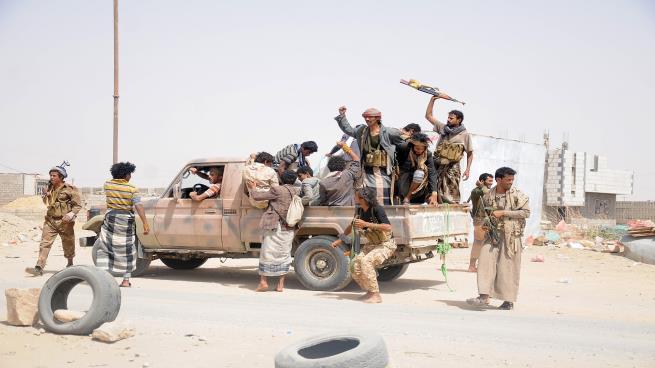
Observers unanimously agree that the Saudi regime exerts publicity in its repeated promotion of peace talks on the war in Yemen, aiming to distract the world from the crimes taking place in the country and cover up the successive attacks on the kingdom.
Observers say that the last thing the Saudi regime wants is peace in Yemen, because sitting the parties to the conflict at the negotiating table is regarded for Riyadh as an admission of the failure of the coalition war and its loss against the Houthis.
Observers attribute the Saudi approach to a letter confirming the existence of ongoing talks with the Houthis to his attempt to prevent targeting the atmosphere and depth of the Kingdom’s lands because it embarrasses them in front of the Saudi public, who is busy with the developments of the Coronavirus pandemic crisis and fears the spread of the virus.
The regime also directs its current rhetoric mainly to the West, which is accustomed to holding the kingdom responsible for any negative development in Yemen, while the failure of the development of communication channels between the Houthis and the Kingdom is mainly due to the absence of the “exit from the Yemeni impasse” strategy of the Saud, who does not yet want to recognize the Houthis .
Two days ago, the Ambassador of the Saudi regime in Yemen, Muhammad Al Jaber, announced that the Kingdom is holding “daily” talks with the Houthis in Yemen, and has invited representatives of it and the internationally recognized government to peace talks in the Kingdom.
The American Wall Street Journal quoted the Al Jaber family as saying that the proposal to hold talks to end the five-year-old war in Yemen, which claimed the lives of more than 100,000 people, is still on the table, despite the escalation of violence at the end of the week. He added that the Houthis had not yet responded to the offer.
On Saturday, the Houthis launched ballistic missiles at Riyadh and other areas, while the coalition responded with air strikes on Sanaa, which was the first to target the Yemeni capital in months.
Al Jaber claimed that Saudi officials spoke with their Houthi counterparts on Monday to stress that Sanaa’s strikes were in response to the missile attack on Saturday, and were not intended to escalate the conflict.
“We are committed to reducing escalation. We are ready for a ceasefire in all Yemeni lands if they accept it. ”
Yesterday, the coalition continued its military escalation in Yemen for the third day in a row, despite international calls to reduce hostilities, while the legitimate government forces announced a qualitative progress in the town of Sarwah, west of the oil province of Marib.
More than 30 air strikes were launched by the warplanes on the governorates of Al-Jawf, Amran, Sa`dah, and Ma’rib, according to the Al-Masirah channel affiliated to the Houthi group, and media outlets of the legitimate government forces who spoke about raids that accompanied the military advance in Sarawah.
In Al-Jawf governorate, in the east of the country, the coalition launched 16 air strikes on the city of Al-Hazm, the provincial capital, and the districts of Khub and Al-Sha`f and Burt al-Anan, which were controlled by the Houthis in early March.
The aviation also launched raids on the main Houthi strongholds in Saada governorate, targeting the border areas with Saudi Arabia in the departments of Sahar and Wahidan, in addition to several raids on the Amran governorate near Sanaa.